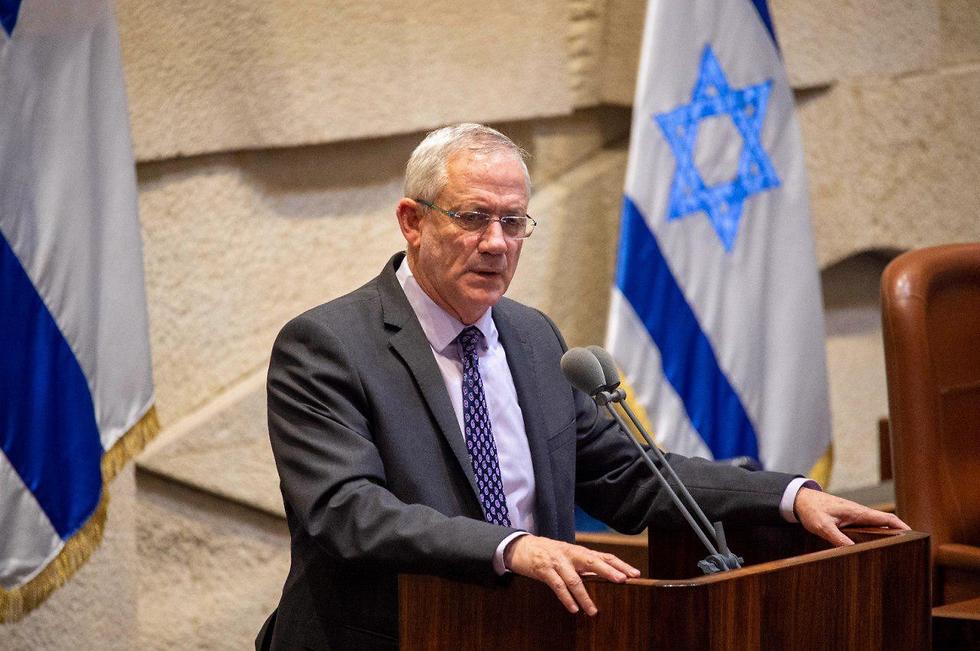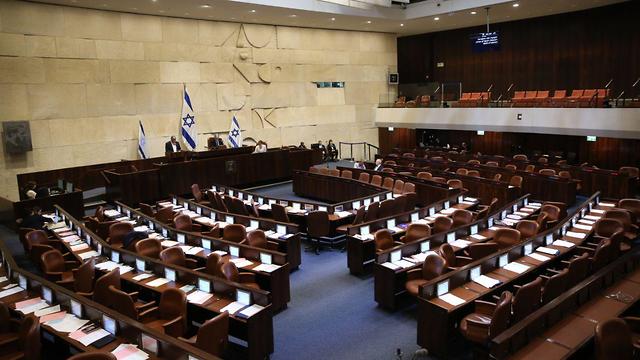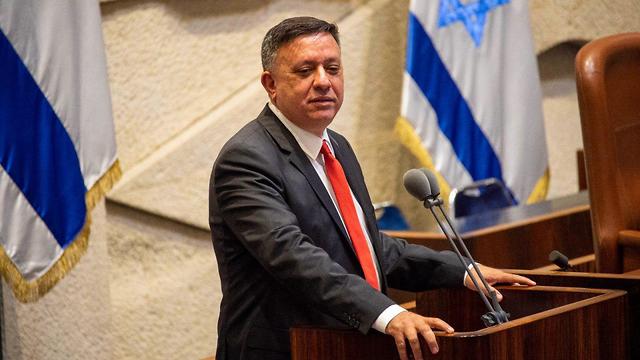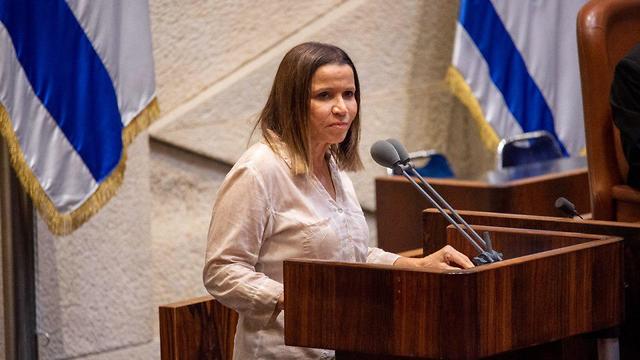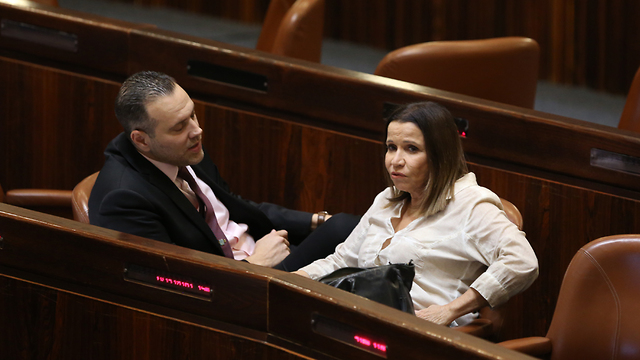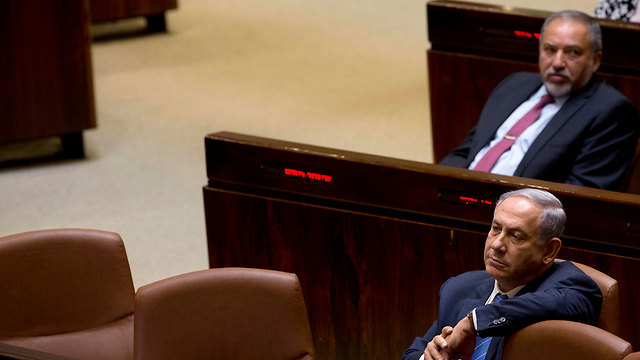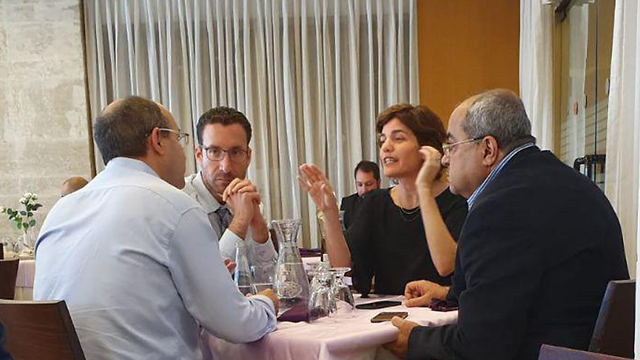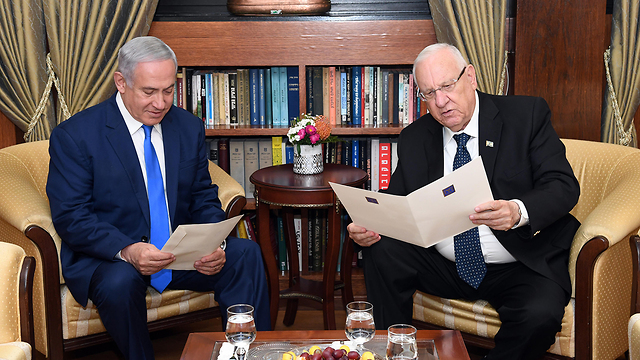
Knesset votes to disperse, hold new elections on September 17
74 of 120 MKs approve unprecedented motion to call for fresh vote after Netanyahu misses deadline to form coalition; at heart of impasse is row over conscription for ultra-Orthodox men; earlier PM tried and failed to lure Labor Party into coalition
Knesset members voted Wednesday night to dissolve parliament, barely a month after the swearing in of the new assembly, after Prime Minister Benjamin Netanyahu failed to strike a coalition deal with his prospective partners.
Dissolving the Knesset and holding a new round of elections just months after the last and without ever having formed a government is unprecedented even in Israel's fast-paced political landscape.
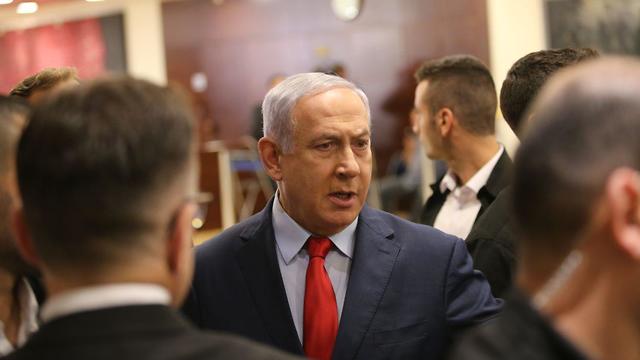
Of the 120 lawmakers that make up the Knesset, 74 voted in favor of dissolving parliament, and 45 voted against.
At the heart of Netanyhu's failed attempt to build a coalition after the April 9 elections was legislation to draft ultra-Orthodox men into the army, which saw two of his expected political partners at loggerheads.
Heading into the plenum to vote Wendesday night, Yisrael Beytenu leader Avigdor Liberman said Israel was holding fresh elections due to the Likud party's refusal to vote on the original version of a bill to draft Haredi men, which he had insisted on and the ultra-Orthodox parties refused to consider.
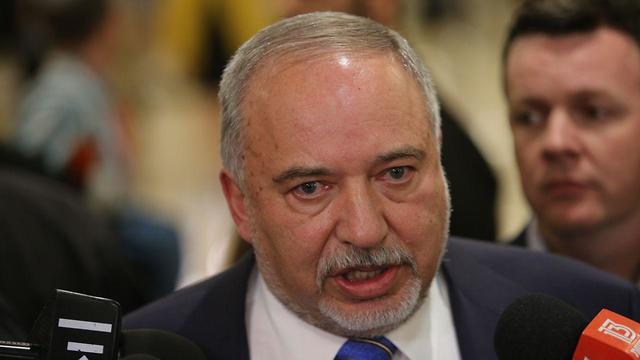
The vote to end the short-lived Knesset marked a dramatic downturn for Netanyahu and sent the longtime leader's future into turmoil.
Netanyahu, who has led Israel for the past decade, had appeared to capture a fourth consecutive term in April's election. His Likud party won 35 seats, and his religious and nationalist allies won another 30, appearing to give him a solid majority in the 120-seat parliament.
But the infighting among his allies, and disagreements over proposed bills that would protect Netanyahu from prosecution stymied his efforts to put together a majority coalition.
Rather than concede that task to one of his rivals, Likud advanced the bill to dissolve parliament and send the country to the polls for a second time this year.
Had the deadline passed, President Reuven Rivlin would have given another lawmaker, most likely opposition leader Benny Gantz, an opportunity to put together a coalition. After the vote, Gantz - whose Blue and White party also won 35 seats in April - angrily accused Netanyahu of choosing self-preservation over allowing the country's political process to run its course.
Gantz said that instead of following procedure, Netanyahu opted for "three crazy months" of a new campaign and millions of wasted dollars over new elections because he is "legally incapacitated" by looming indictments.
"There is no other reason," Gantz said.
Earlier Wednesday evening, Likud said that Netanyahu tried offering Liberman and the ultra-Orthodox parties a compromise on the conscription bill, which would have paved the way for the formation of a coalition and prevented repeat elections, but the offer was rejected by both parties.
According to the offer, Netanyahu proposed that the original draft bill be brought to a vote and if the Haredim refused to support the measure, the automatic deferment yeshiva (Jewish seminary) students currently enjoy would duly be annulled, according to a Supreme Court decision.
Likud announced that it had garnered the support and finalized coalition agreements with 60 Knesset members, which would leave Netanyahu one lawmaker short of a majority in the 120-strong Knesset. However, Likud offshoot Kulanu, which agreed Tuesday to join the Likud list in the event of elections, denied that they had signed anything. Likud responded that the agreements were in place in the event Liberman joined the coalition.
According to the law, the prime minister had until 11:59 pm Wednesday to notify the president regarding the formation of a coalition and if not, the task of forming a government could be given to another MK.
As of 10pm, MKs were ascending to the dais to present their assessment of the situation. The opposition intended to vote against the motion to disperse the Knesset but decided to withdraw their reservations and allow the vote to proceed immediately.
Facing the prospect of new elections after failing to put together a coalition, Netanyahu tried to lure the Labor Party into joining his government. The prime minister reportedly offered the Justice Ministry to former Labour leader Shelly Yachimovich and support for the candidacy of former defense minister Amir Peretz for the presidency.
Labor Chairman Avi Gabbay convened a meeting to discuss the offer, but party members ultimately rejected it. The party reiterated its desire to see Rivlin task Blue and White Party Chairman Benny Gantz with trying to form a coalition, after Netanyahu's failure.
Labor MKs said that Netanyahu was very generous in his offer and showed willingness to refrain from legislation that would earn him immunity form criminal prosecution as well as legislation aimed at curbing the power of the Supreme Court, both very controversial issues.
When the offer was made public, Blue and White MK Yair Lapid implored Gabbay not to accept it: "There is a limit to how much disgust the public can swallow. I cannot believe that you would do such a thing."
Earlier, it was reported that members of the coalition fear that they may not garner enough votes to pass a motion to disperse the Knesset. In light of that, the Arab parties reconsidered their aye vote and might stay away or abstain.
Also on Wednesday, Naftali Bennet and Ayelet Shaked, whose New Right party failed to pass the threshold in April, met at Bennett's Tel Aviv office. It is widely believed that Shaked intends to join the Likud's ranks, but there is still a chance that she will run again with Bennett.
Likud members embarked on a verbal offensive against Liberman for his refusal to compromise over the draft bill, accusing him of trying to "bring down the prime minister." They said that Liberman had in the past made deals with Haredi parties and suddenly now, "his hunger for power is going to drag the whole country to elections."
Rivlin on Wednesday afternoon issued a video message, explaining where coalition efforts stood and what would follow in various scenarios. He also vowed to do all he could ot prevent fresh elections.
“My fellow citizens: I receive and read all your inquiries about forming the government. Considering the volume of inquiries that we have received on the subject, it is important for me to explain what the legal authority of the president is.
"Prime Minister Benjamin Netanyahu was given 28 days to form a government. According to the law, he was given an additional 14 days beyond that, which end today at midnight.
"If a government is not formed by midnight tonight, I have two options and I must take one of them within three days. The first option is to entrust any other Knesset member, except for a Knesset member who has already had the opportunity and has not succeeded. The second option is to inform the Speaker of the Knesset that there is no possibility of forming a government and that there is no alternative but to call for elections.
"To make the decision, I will again invite the representatives of the factions for consultation. Incidentally, you should know that if I inform the Knesset Speaker that I do not believe another Knesset member could form a government, Knesset members can collect 61 signatures and request that any one of the 120 members of Knesset, including those who have already had the opportunity, be given the mandate to form a government.
"You are probably wondering how this relates to what is going on at the moment in the Knesset. Well, it does not. Parallel to my authority as president, the Knesset can enact a law to disperse the Knesset. If the law to disperse the Knesset passes its second and third reading with a majority of members — at least 61 — the procedures for forming a government will cease. The Knesset will be dispersed, and unfortunately, we will go to another election campaign.
"I, for my part, will do everything in my power to prevent the State of Israel from going to another election campaign. Thank you for listening,” the president said.















